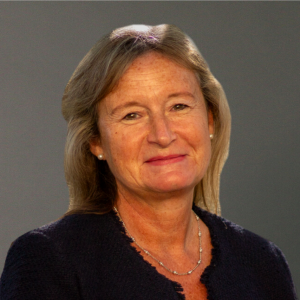Being able to claim priority for applications for registered intellectual property rights is absolutely essential to the smooth running of the IP world. In this article, our intellectual property lawyers explain what claiming priority is, how to claim priority and how the process differs for trade marks, patents and registered designs.
If you’re reading this because you want to understand how priority claims work and how to secure earlier filing dates for your intellectual property, our intellectual property solicitors can help. We’ll advise you on how priority claims operate, when they’re available, and guide you through the process to make sure your rights are properly protected.
Contents:
What is claiming priority?
Claiming priority back-dates your protection, whether you have a registered design, a patent or a trade mark. Claiming priority from your first application for something means you don’t have to file for protection in multiple places at the outset, with all the fees that would entail. It protects you from opportunists who try to pre-empt your rights in other countries, and preserves the all-important novelty of your invention or design.
- If someone were able to watch what others were registering in other countries, file an application and secure a registration in their own country, and then hold the person who filed the first application to ransom, there would be a lot of time-wasting disputes and frustrated IP owners.
- If a third party has done something that infringes your rights, claiming priority may give you protection that covers the date of that infringement and will enable you to take action.
- If filing an application for a patent or registered design in your own country meant that the invention or design had been made available to the public, meaning that it was no longer novel, you could have to file everywhere in the world simultaneously, making an already expensive exercise ruinously pricey.
International conventions in the IP field help to overcome these problems by giving applicants a period during which they have priority over subsequent applications in other countries, and ensuring that any overseas applications you file won’t fail because novelty has been lost. For trade marks and registered designs you get six months, and for patents you get 12 months.
Claiming priority for trade marks
In the case of trade marks, there is no novelty problem and priority claims only help avoid problems with squatters moving in before you file your application. Claiming priority is simple: when your application is filed at the Intellectual Property Office in the UK, or at the EUIPO in the EU, you just have to provide a copy of the application from which you are claiming priority and your new UK or EU application is, in effect, back-dated to the priority date. Your new application must be to register the same trade mark, for goods or services within the specification of the earlier application.
If someone has applied to register a conflicting trade mark in the interim, your application will not be refused just because of that (and ultimately, assuming your application proceeds to registration, you will be able to challenge theirs).
If your second application covers goods and services not included in the application from which you are claiming priority, you will get backdated protection only for the goods or services which were in the first application. Drawing up the specification to include everything you want to cover, without making it too wide and potentially invalid in part, is something that an experienced trade mark solicitor can help you with.
Claiming priority for patent applications
Claiming priority for a patent application is also a fairly simple matter. You cannot be given priority for anything not included in the application that started the process (which, for a UK national or company, will almost always be an application for a UK patent or a European Patent GB). Conveniently, you will be able to use the documents filed in that application to file direct in other countries, although translations may be needed – or, more usually, to file through the European Patent Convention or the Patent Co-operation Treaty. The latter gives you easy access to (currently) 156 countries, which means just about everywhere you would wish to have a patent. The big omissions are Argentina and Taiwan, so you would have to file direct there.
Claiming priority for designs
With registered designs, the laws are not as well-harmonised around the world as they are for trade marks or patents, although UK and EU laws share a common origin and the substantive rules are the same.
The equivalent of a registered design in the United States is a design patent, and there are many significant differences in the way the law works. For one thing, the illustrations that must be included in an application must comply with different requirements, an intellectual property lawyer will be able to guide you through this process, ensuring that the illustrations that satisfy the examiner in the UK will be acceptable in the US, or vice versa.
Summary
It is essential that you devise a filing strategy to ensure that your IP is protected as well as possible throughout the world. Getting priorities docketed and met requires vigilance and a robust software platform for deadline monitoring. An experienced intellectual property solicitor can help you identify the priority claims that are available to you and will help you meet the relevant deadlines.
If you have already missed a deadline, you should immediately seek legal advice from one of our intellectual property solicitors. In some circumstances we can help you make a late claim for priority.

